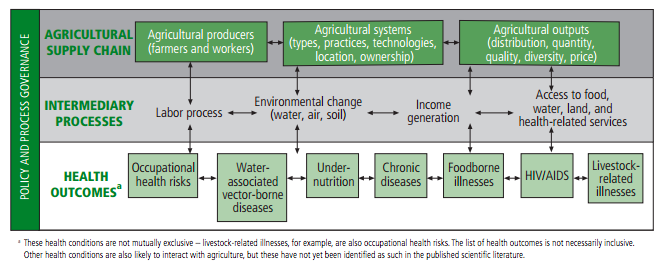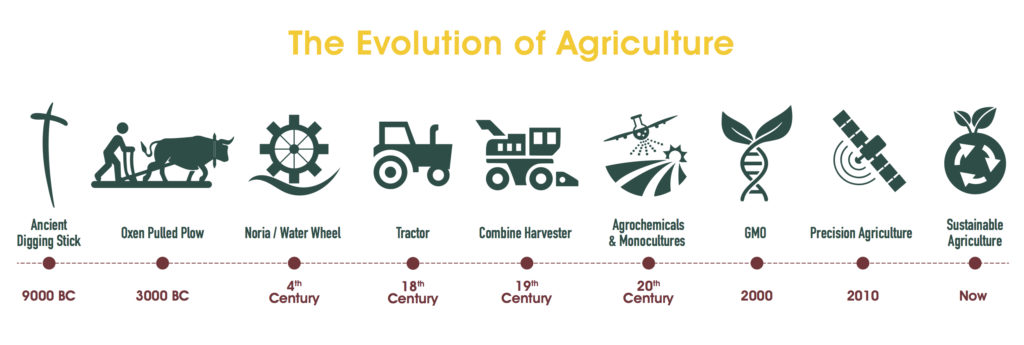The global food system is in need of a significant overhaul. Modern agriculture must provide greater quantity and quality of food for everyone at a time when population pressure is rising and our resources are diminishing. Fortunately for us this incredible challenge also represents a profound opportunity and we are committed to driving the innovations necessary to revolutionize the agricultural system.
Few challenges facing the world today match the scale and severity of global food security. Up to 5% of food production capacity is lost every year due to the impacts of a changing climate and arable land degradation, while an incredible 30% of food ends up in landfills. Despite the waste, malnutrition directly affects one in three people on the planet today and drastically increases health issues ranging from obesity and non-communicable (chronic) diseases, food-borne illnesses, malaria and HIV/AIDS to name jut a few.
The Links Between Agriculture and Global Health
World Health Organization (2016)
The financial burden is also overwhelming. According to the World Economic Forum (WEF) an average 11% of gross domestic product (GDP) is lost across Asia and Africa every single year due to food instability and micronutrient deficiencies in these regions. This is greater than the loss experienced during the 2008–2010 financial crisis. This burden is also being felt in households around the world. In the United States, when one person is obese, the household faces additional annual health care costs equivalent to 8% of its annual income. In China, a diagnosis of diabetes results in an annual 16.3% loss of income for those with the disease.
If nothing changes in how produce food, we will continue to have a system that pollutes the atmosphere, depletes resources, deteriorates global health and catalyzes antimicrobial resistance. By investing in the New Green Revolution you are all making an active effort to revolutionize the system and ensure a safer, productive and sustainable environment for future generations. This is one of the most powerful tools we have for shaping a better world and what’s more we can profit from such action. The WEF have calculated that projects focusing on strengthening agriculture and our global food supply deliver an average $16 in returns on investment for every $1 spent.
The First Steps in Strengthening Global Food Security
Improved food systems, agronomy and nutrition are vital in strengthening health, education, employment, poverty and inequality reduction around the world. Agriculture, famously responsible for addng pressure to the vital systems, is one of the few industries that have changed very little in the last half-century. We need policies that will shift the entire food system towards global well-being, transparency and accountability for food safety. We must transform archaic practices in order to produce healthier, more nutritious diets for all in a safe and sustainable manner. Neem will become a profound driver of change in this regard.
Source: Primal Group (2016)
One of the most versatile trees on the planet, this single tree offers innovation where it is needed the most – across agriculture, healthcare and environmental protection. An evergreen and part of the Meliaceae (Mahogany) family, neem has been celebrated for its remarkable healing properties as far back as 5,000BC by the Harappa and Monejo civilizations. Described in ancient Indian Ayurvedic texts as ‘sarva roga nivarini’ (the universal healer of all ailments) and ‘nimba’ (giver of good health), neem’s name in Sanskrit is ‘Arista’ – meaning ‘perfect, complete and imperishable’. Fast-forward to the present day and neem is being utilized around the world to protect crops, increase soil nutrition, boost livestock health and sequester carbon from the atmosphere.
Agriculture requires more collaborative, sustainable and inclusive ways of feeding and protecting the planet. We continue to address the industry’s dangerous practices in every aspect of our operations in order to positively influence the environment and strengthen natural resource security. With the goal of creating sustained, positive change, we will use neem to drive a revolution in agriculture.

